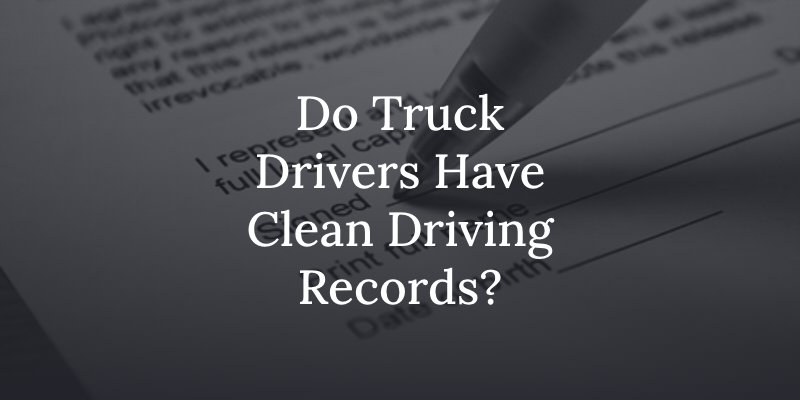Semi-tractor trailer trucks are immense in size and are difficult to maneuver. They require lengthy stopping times, make wide turns, and have extended blind spots. They also outweigh common cars by as much as 76,000 pounds when fully loaded. In fact, an 18-wheeler’s engine alone weighs as much as some small cars. Motorists in smaller vehicles face a significant safety risk while sharing the road with trucks that far outsize and outweigh them. For those injured in such accidents, consulting a truck accident lawyer in St. Louis can provide guidance in pursuing compensation for their injuries. Despite the reliance of our communities on the goods brought by large commercial trucks, motorists are vulnerable to serious or catastrophic injuries in accidents involving large trucks. For this reason, it’s common to believe that truck drivers must have exemplary driving records. Surprisingly, regulations do not require truck drivers to have or maintain clean driving records.

What Driving Citations Disqualify Semi Truck Drivers?
Commercial trucks cross state lines and sometimes cross into bordering countries like Canada and Mexico. For this reason, they fall under federal regulation guidelines set by the Federal Motor Carrier Safety Administration (FMCSA). According to FMCSA regulations, the following driving offenses disqualify a truck driver from obtaining or keeping a commercial driver’s license (CDL)for truck driving:
- A DUI conviction
- A finding of a blood alcohol level of 0.4 or higher while operating a commercial truck
- Driving under the influence of one or more controlled substances
- Refusing a blood alcohol test
- Fleeing the scene of an accident
- Using a commercial vehicle while committing a felony, including felonies involving manufacturing or transporting illegal substances
- Driving a commercial vehicle with a suspended or revoked CDL
- Causing an accident with a fatality while driving a commercial vehicle
Even those drivers with permanent disqualifications may sometimes earn a reinstatement by completing a state-approved rehabilitation program under Title 49§ 383.51 rules for the disqualification of drivers.
Other traffic violations may require a temporary CDL suspension, typically for 60 days. These violations include speeding, reckless driving, unsafe lane changes, tailgating, using a handheld device while driving, driving without a CDL in the driver’s possession, or driving a commercial vehicle without the necessary endorsements—such as for transporting hazardous materials.
Liability for Disqualified Driving
When a truck driver causes an accident, a critical part of the investigation determines whether or not a FMCSA violation occurred, including a disqualified driver behind the wheel. When a disqualified driver causes an accident, the driver and/or the trucking company they work for are liable for damages like medical expenses, lost wages, and compensation for pain and suffering to any injury victims harmed in the accident. Proving liability for commercial truck accidents requires evidence showing the following:
- The at-fault party owed a duty of care to others on the road to take all reasonable measures to avoid causing injuries
- They breached this duty through negligence
- Their breach of the duty of care directly caused the injury
- The injury victim suffered significant damages from the injury
In a commercial truck accident, driving while legally disqualified due to violations leaves the truck driver and the company they work for liable for damages. For those impacted, consulting a St. Louis personal injury lawyer can help ensure their rights are protected and that they receive the compensation they deserve.

